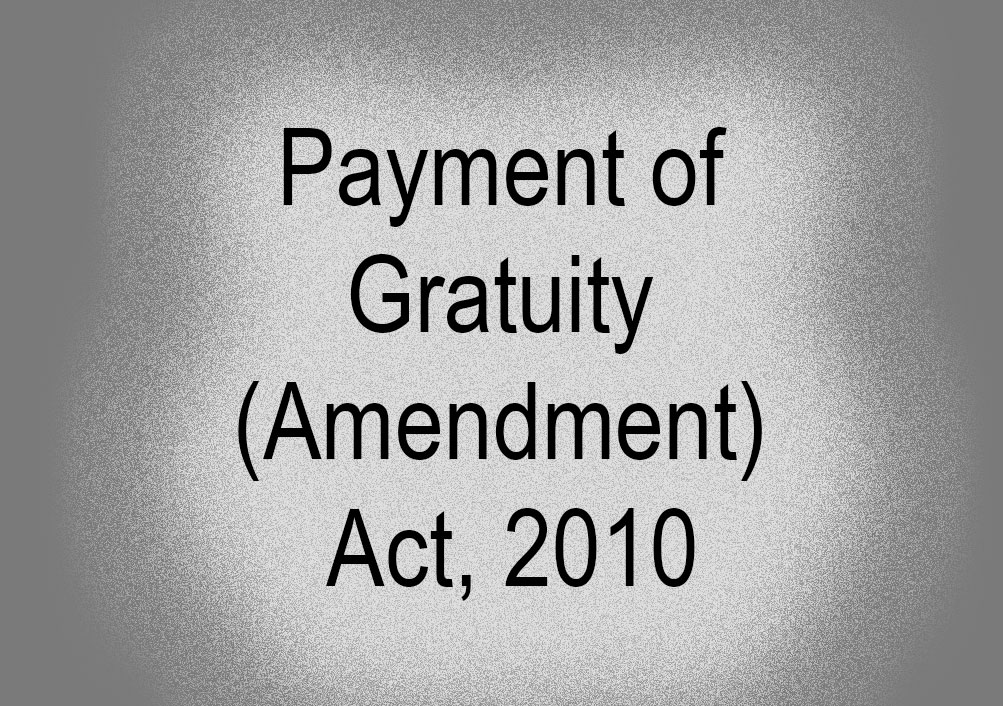2010 Amendment in Gratuity Act fixing Rs. 10 lakh as amount of gratuity not retrospective: Supreme Court

Read Judgment- KRISHNA GOPAL TIWARY & ANR v. UNION OF INDIA & ORS
New Delhi, August 16, 2021: The Supreme Court has dismissed an appeal against an order of the Jharkhand High Court whereby the claim of the employees of Coal India Limited to declare the applicability of the Payment of Gratuity (Amendment) Act, 2010 from January 1, 2007 was declined.
Referring to the provisions of sub-sections (2) and (3) of Section 4 of the Gratuity Act, the Division Bench of Justice Hemant Gupta and Justice A.S.Bopanna made it clear that the Act contemplated Rs ten lakhs as the amount of gratuity only from May 24, 2010.Therefore, such amendment in the Act and the provisions of the statute cannot be treated to be retrospective.
The facts pertain to an approval given by the Government of India whereby the ceiling of the gratuity was raised to Rs.10 lakhs from Rupees 3.5 lakhs w.e.f. 1.1.2007 in terms of an office memorandum dated 26.11.2008.
Now, the appellants, being the employees of Coal India Limited, were paid such gratuity in terms of this office memorandum. However, later on, the Payment of Gratuity Act was amended and in terms of Section 1(2) of the Amending Act, a notification was issued by the Government of India on May 24, 2010 appointing the said date as the date on which the Amending Act came into force.
The appellants vehemently contended that the tax has been deducted at source (TDS) when the gratuity was paid to the appellants before the commencement of the Amending Act.
The appellants particularly challenged the date of commencement as May 24,2010 but asserted that it should be made effective from January 1, 2007 and consequently the appellants would not be liable for deduction of tax on the gratuity amount.
The Apex Court plainly stated that Sub-section (5) of Section 4 of the Gratuity Act protects the right of an employee to receive better terms of gratuity under any award or contract with the employer. The gratuity paid to the appellants on the strength of office memorandum dated November 26, 2008 would fall in the said sub-section.
The Supreme Court also made it clear that what is exempted from the Income Tax Act is the amount of gratuity received under the Gratuity Act to the extent it does not exceed an amount calculated in accordance with the provisions of sub-sections (2) and (3) of Section 4 of the Gratuity Act.
“The Gratuity Act contemplated rupees ten lakhs as the amount of gratuity only from 24.5.2010. Such gratuity is the amount payable only once. Thus, the cut-off date cannot be said to be illegal, it being one-time payment. Therefore, such amendment in the Gratuity Act cannot be treated to be retrospective,” noted the Bench.
The Top Court also observed that the date of commencement fixed by the Executive in exercise of power delegated by the Amending Act cannot be treated to be retrospective as the benefit of higher gratuity is one-time available to the employees only after the commencement of the Amending Act.
Thus, it was concluded that the benefit paid to the appellants under the office memorandum is not entitled to exemption in view of specific language of Section 10(10)(ii) of the Income Tax Act.
Sign up for our weekly newsletter to stay up to date on our product, events featured blog, special offer and all of the exciting things that take place here at Legitquest.




Add a Comment